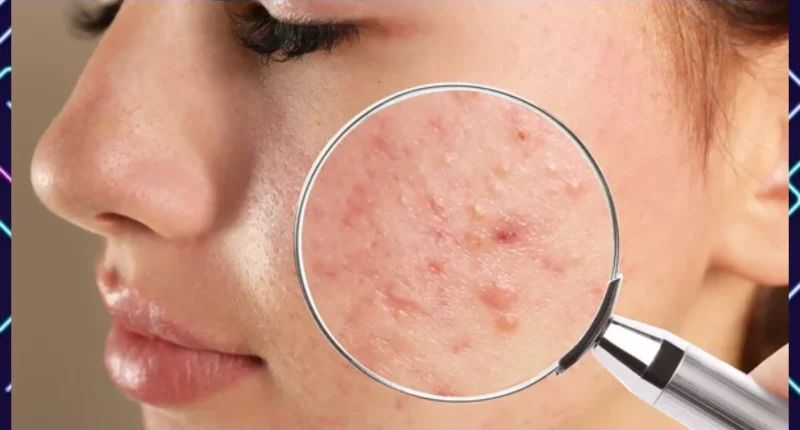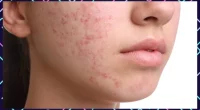The best ways to prevent acne are choosing from available options, trying it out, and sticking to what works for you. Acne is a widespread skin condition that affects approximately 85% of individuals at some point in their lives, with a notable prevalence among adolescents and young adults, study reported.
While it can impact anyone, research by Nature suggests that acne tends to affect more females than males during adolescence, with the females often experiencing hormonal acne in their late teens and early twenties, report.
This condition arises when hair follicles become clogged with oil and dead skin cells, leading to inflammation and the formation of various types of lesions, including comedones, papules, and cysts.
With the discussed in view, the importance of effective prevention strategies to manage acne cannot be played with. Here are key methods to stick with.
Read More: How do you know you have fungal acne? Causes, symptoms and treatment
How to Prevent Acne
To effectively prevent acne, it’s essential to adopt a comprehensive skincare routine and make mindful dietary choices. Here’s a detailed guide on how to prevent acne through skincare practices and dietary adjustments.
1. Maintain a consistent skincare routine that involves gentle cleansing
Cleansing is the cornerstone of any effective skincare routine. It is crucial to wash your face twice daily with a gentle cleanser that suits your skin type. This helps remove excess oil, dirt, and dead skin cells that can clog pores and lead to breakouts. Look for products that are soap-free and avoid harsh ingredients that can irritate the skin. For example, gel-based cleansers infused with soothing ingredients like thyme and witch hazel can effectively cleanse without stripping the skin of its natural moisture.
2. Use non-comedogenic products
When selecting skincare and makeup products, opt for non-comedogenic formulations. These products are specifically designed not to clog pores, reducing the risk of acne formation. Ingredients like salicylic acid and benzoyl peroxide are beneficial for acne-prone skin as they help to prevent breakouts and reduce inflammation. Always check labels to ensure that the products you use are suitable for your skin type and do not contain comedogenic ingredients.
3. Avoid excessive washing
While cleansing is vital, over-washing can lead to skin irritation and dryness, causing the skin to produce more oil as a compensatory mechanism. This can exacerbate acne issues. It is recommended to cleanse your face no more than twice a day and to avoid scrubbing too hard, as this can damage the skin barrier and lead to further breakouts.
4. Cut down on high glycemic index foods
Research indicates a correlation between diet and acne, particularly the consumption of high glycemic index (GI) foods. Foods that cause rapid spikes in blood sugar, such as white bread, sugary snacks, and processed foods, may increase the likelihood of acne. Instead, focus on a balanced diet rich in whole grains, fruits, vegetables, and lean proteins, which can help stabilize blood sugar levels and reduce inflammation.
5. Reduce Intake of Dairy Products
Dairy products have also been linked to acne in some studies, possibly due to hormones present in milk. Reducing or eliminating dairy from your diet may help some individuals see improvements in their skin condition. Consider alternatives such as almond milk or soy products if you suspect dairy could be a trigger for your acne.
6. Get the Proper Amount of Rest
Adequate sleep is crucial for overall health and plays a significant role in skin restoration. During sleep, your body works to repair and regenerate skin cells, which can help reduce the likelihood of acne. Teenagers, in particular, often struggle to get enough rest due to busy schedules and social activities. Aim for 7-9 hours of quality sleep each night to support your skin’s health and minimize acne outbreaks.
7. Avoid Squeezing or Picking at Pimples
It can be tempting to squeeze or pick at pimples, but this practice can lead to more severe infections and scarring. When you manipulate acne lesions, you risk pushing bacteria deeper into the skin, which can exacerbate inflammation and lead to further breakouts. Instead, allow pimples to heal naturally and consider using topical treatments to manage them.
8. Shower After Exercise
Exercise is beneficial for overall health, but sweat can contribute to clogged pores if not addressed promptly. It’s essential to shower immediately after exercising to remove sweat, oil, and bacteria from your skin. Delaying your shower can allow these substances to settle into your pores, increasing the risk of acne. If you’re exercising in a location with shower facilities, take advantage of them to maintain clean skin.
9. Wear Clean White T-Shirts
Wearing clean white t-shirts can help absorb excess oils from your skin, particularly on your back, where acne can also occur. Darker fabrics may trap oils and bacteria against your skin, potentially leading to breakouts. Opt for breathable, light-colored fabrics to help keep your skin clear.
10. Remove Makeup Before Bed
Always remove makeup before going to bed to prevent clogged pores. Makeup can trap oil and bacteria on your skin, leading to acne outbreaks. Use a gentle makeup remover or cleansing wipes to ensure your skin is clean before applying your nighttime skincare products.
11. Choose Non-Oil-Based Products
If you are prone to acne, avoid oil-based sunscreens and skin lotions, as these can contribute to clogged pores and worsen your skin condition. Instead, opt for oil-free, non-comedogenic products that are specifically formulated for acne-prone skin. Look for labels that indicate the product is lightweight and won’t clog pores.
12. Use Salicylic Acid
After washing your face, consider using a cleaning solution that contains Salicylic Acid, specifically a 2% solution. Salicylic Acid is a beta hydroxy acid that helps exfoliate the skin, unclog pores, and reduce inflammation. It can be found in various acne treatment products, including cleansing pads and spot treatments. Incorporating this ingredient into your routine can help keep your skin clear.
Read More: Four reasons why spicy foods cause acne
More Tips
Combining a consistent skincare routine with mindful dietary choices can significantly reduce the occurrence of acne. Here are some effective practices:
Hydration: Drink plenty of water throughout the day to keep your skin hydrated and support overall skin health.
Moisturizing: Even if you have oily skin, using a lightweight, non-comedogenic moisturizer is essential. This helps maintain your skin’s hydration balance and prevents excessive oil production.
Sun Protection: Always apply a broad-spectrum sunscreen during the day to protect your skin from UV damage, which can worsen acne scars and lead to further skin issues.
Final Note…
The most crucial aspect of preventing acne outbreaks is to keep your pores clear. Clogged pores are the primary cause of acne, so maintaining a consistent skincare routine, practicing good hygiene, and making mindful lifestyle choices are essential. By following these strategies, you can significantly reduce your risk of acne and promote healthier skin.
To learn more about Acne, don’t miss Adult Acne Vs Teenage Zits: What’s The Difference?
References
- Cetaphil. (n.d.). How to get clearer skin. https://www.cetaphil.com/us/skincare-tips/skincare_guides/how-to-get-clearer-skin.html
- Simple Skincare. (n.d.). Prevent acne: Effective skincare routine for clear skin. https://www.simpleskincare.in/blogs/tips/prevent-acne-effective-skincare-routine-for-clear-skin
- The INKEY List. (n.d.). Treating acne masterclass. https://www.theinkeylist.com/blogs/news/treating-acne-masterclass
- CeraVe. (n.d.). Why an acne routine is essential for clear skin. https://www.cerave.com/skin-smarts/skin-concerns/acne/why-an-acne-routine-is-essential-for-clear-skin










